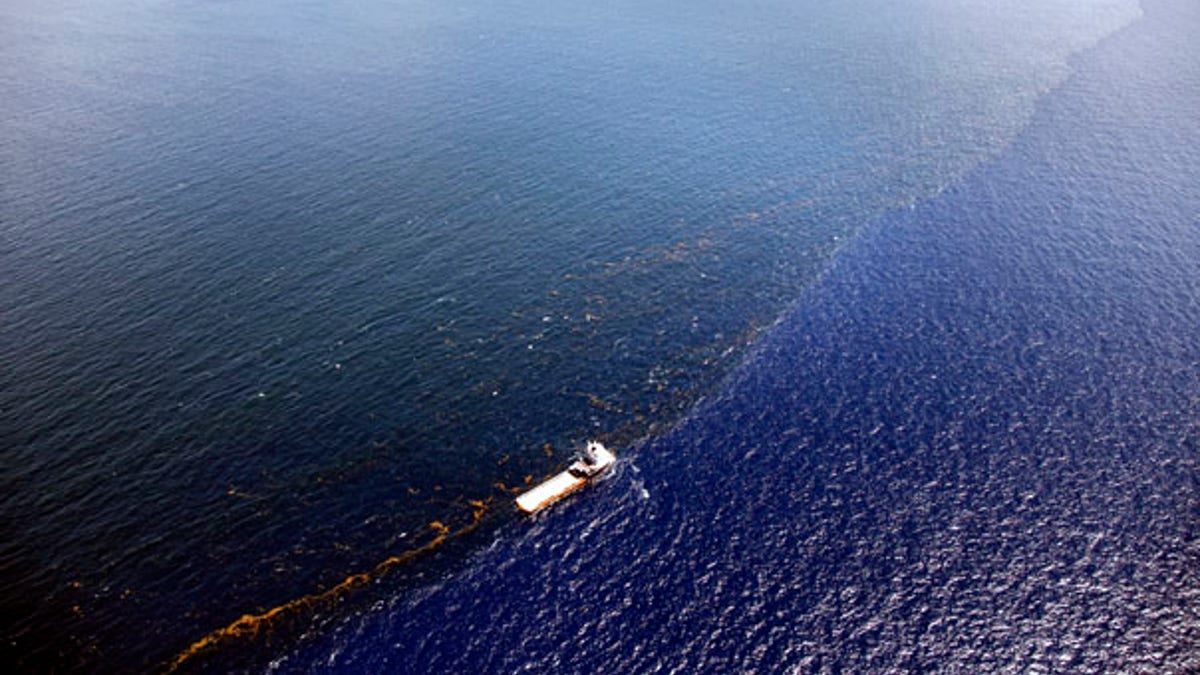
July 26: A response vessel is seen along a line of emulsified oil between the Deepwater Horizon oil spill site and the Louisiana coast in the Gulf of Mexico. (AP)
Nearly two weeks after successfully capping the gushing well in the Gulf of Mexico, cleanup crews roving the water's surface have a pressing question at hand: where is the oil?
"What we're trying to figure out is where is all the oil at and what can we do about it," said National Incident Commander Thad Allen, the retired Coast Guard commandant heading up the spill clean-up efforts.
After spending three months of skimming and burning oil on the surface and trying to stem the most massive spill in U.S. history, emergency crews are confronting the difficult new task of simply finding large concentrations of crude.
"What we have is an aggregation of hundreds of thousands of patches of oil and the challenge is to find out where they are at right now because they are widely dispersed," Allen told reporters.
Allen clarified the challenge: "Maybe patches is a misnomer on my part. What we're seeing are mats, patties, small concentrations, very hard to detect, but they're out there."
Between 1 and 2 million gallons of oil was leaking daily from the Deepwater Horizon well before the cap was put in place, though much of it escaped BP pipelines and skimmers trying to siphon away the toxic oil.
Thousands of boats have trawled the waters of the Gulf and about 150 recon planes have been flying constant observation missions from Florida to Texas for large patches, Agence France-Presse reported.
But by last week the boats' take was down to a minuscule 56 barrels -- perhaps rendering useless BP's current fleet of 800 skimmers, many being run by fishermen whose livelihood was destroyed by the oil spill.
Allen told reporters he was exploring his options and would meet with local leaders Thursday to discuss ways to redeploy BP's Vessels of Opportunity program in surveillance work searching for oil.
But where indeed is all the undiscovered oil?
Some experts say ocean microbes and natural forces in the sea have broken down the crude, but others fear the oil is lingering undetected in underwater plumes, the AFP reported.

